
As software and the web have become more complex, the need for easy-to-use technical documentation has increased. Whether your organization is B2B or B2C–or even if you serve an internal audience–the content you produce that helps, supports, and guides your customers in using products and services successfully is now more important than ever.
You may have to deliver this content to multiple channels or clients. You may have to update it frequently. And you may need to show your leadership whether the content is helping customers.
To better understand the challenges those who produce this critical content face, and the opportunities they see ahead, Content Science partnered with The Content Wrangler and Heretto to survey more than 100 content professionals and leaders in this space. Let’s start with the challenges.
Top Three Challenges
The survey asked participants what challenges they face related to technical documentation content. Three specific challenges rose to the top out of about 16 different issues.
1. Measuring Success
More than half of respondents (53%) said that “limited or no data about effectiveness and impact” was their top challenge when it comes to their help content.
And, the larger the company, the more likely they are to struggle with measuring success.
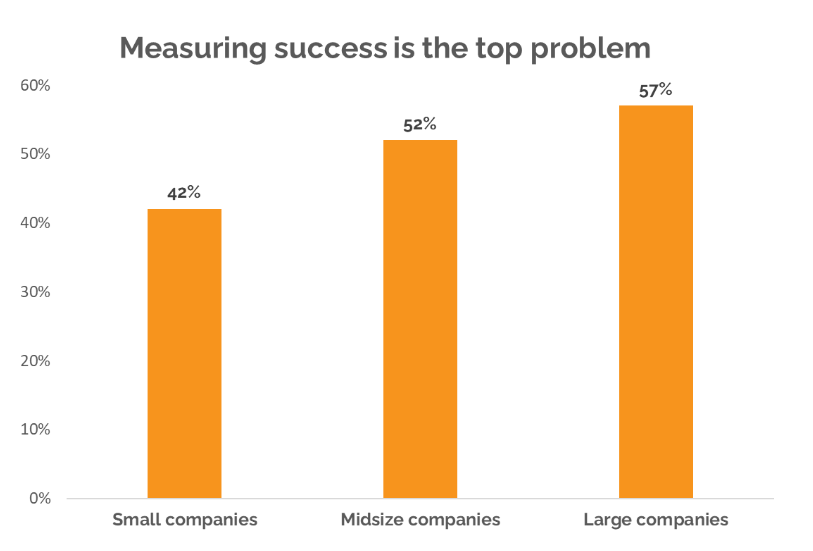
2. Operating Efficiently
Operations problems were a close second to measuring success. Almost half (47%) of respondents selected “manual, slow processes” as a top help content problem. Those who struggled with manual, slow processes were more likely to say customers/users weren’t satisfied with the content.
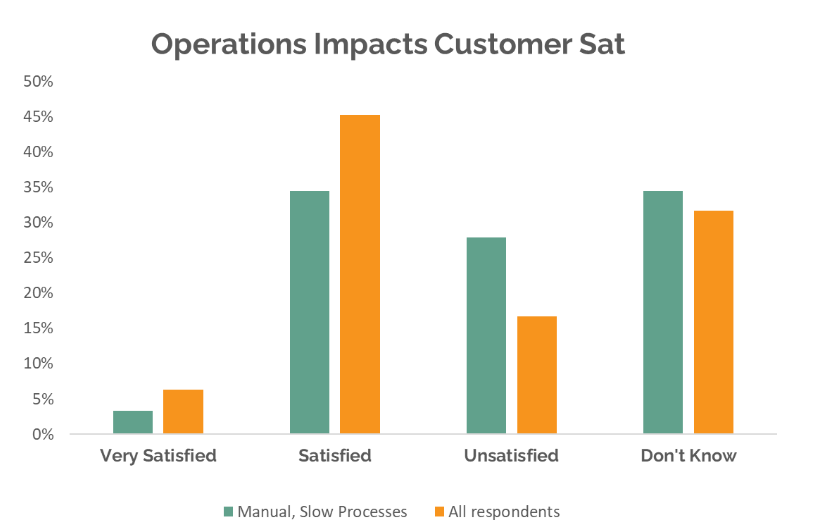
3. Delivering Content
The survey posed a separate question about content delivery: “Are you able to deliver [help] content to multiple channels?” A significant majority of 72% said they are not able to deliver help content to multiple channels or can, but only manually, making content delivery a top challenge. Small companies are struggling the most with content delivery.
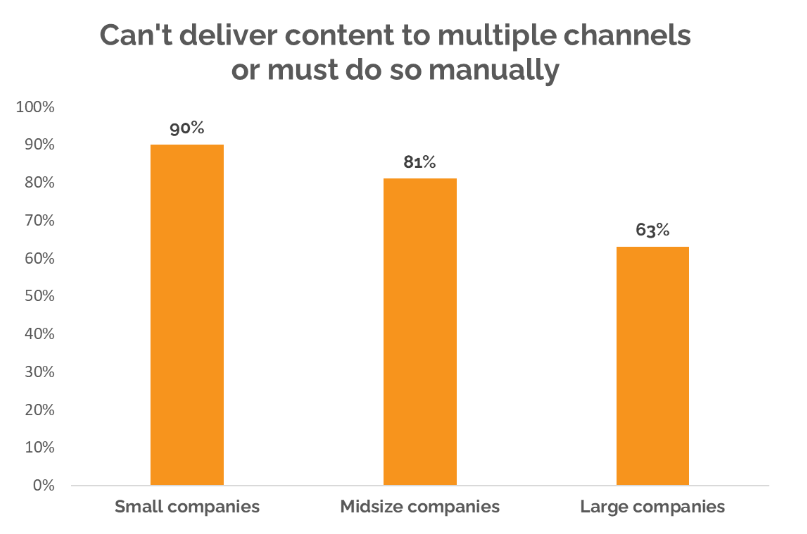
Three Key Opportunities
Although organizations are facing a variety of challenges when it comes to their help content, there are opportunities ahead for enhancing and evolving technical documentation.
1. There’s Strong Interest In Improving Help Content
Respondents selected a wide range of areas they say their organizations are interested in improving. Enhancing content measurement, unifying content, and increasing automation rose to the top.
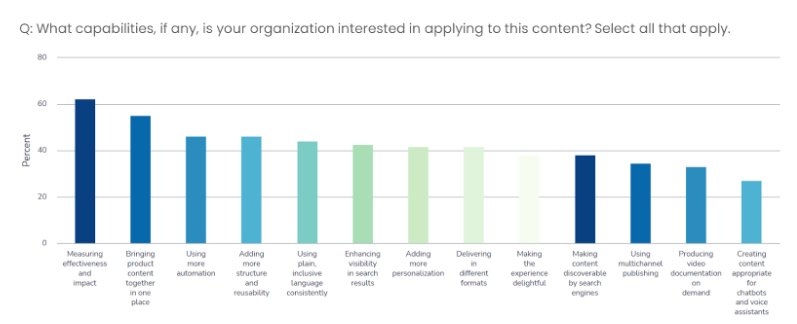
2. Top Pick for Making Content Authoring Better Can Be Low-Hanging Fruit
Survey respondents were most likely to say that the content authoring tool they use for documentation would provide a user-friendly / intuitive user interface in an ideal world, out of 15 different choices.
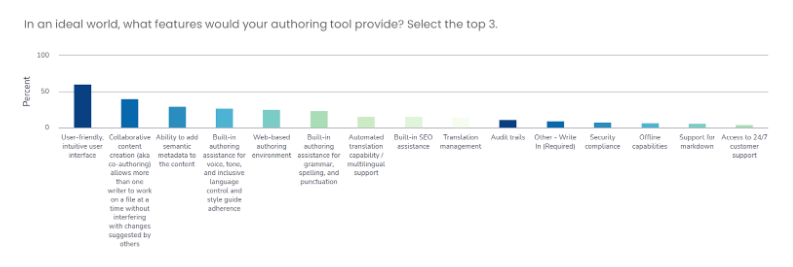
Although great UX overall takes hard work, smaller UX changes may be low-hanging fruit for content authoring tool providers to fix. Conducting a quick review of top pain points for content authors may unearth simple changes such as improving a line of microcopy or removing an unuseful field.
3. Structured XML Can Make a Major Difference to Operations
Organizations that report using structured XML for their help content are having more success with their help content. Those using structured XML are:
- More likely to say their customers / users were satisfied with the content
- More likely to want to expand the use of automation, personalization, and multichannel publishing
- Less likely to have challenges with efficiency and scalability
Bottom Line
Though technical documentation has been around since engineering started, the demand for it at scale is new. It’s an exciting but difficult time. The insights from our survey as well as our ongoing content operations research will help all of us navigate the obstacles and opportunities. As we continue to study technical documentation and its impact, you can count on us to share more insights.
Events, Resources, + More
New Data: Content Ops + AI
Get the latest report from the world's largest study of content operations. Benchmarks, success factors, commentary, + more!
The Ultimate Guide to End-to-End Content
Discover why + how an end-to-end approach is critical in the age of AI with this comprehensive white paper.
The Content Advantage Book
The much-anticipated third edition of the highly rated book by Colleen Jones is available at book retailers worldwide. Learn more!
20 Signs of a Content Problem in a High-Stakes Initiative
Use this white paper to diagnose the problem so you can achieve the right solution faster.


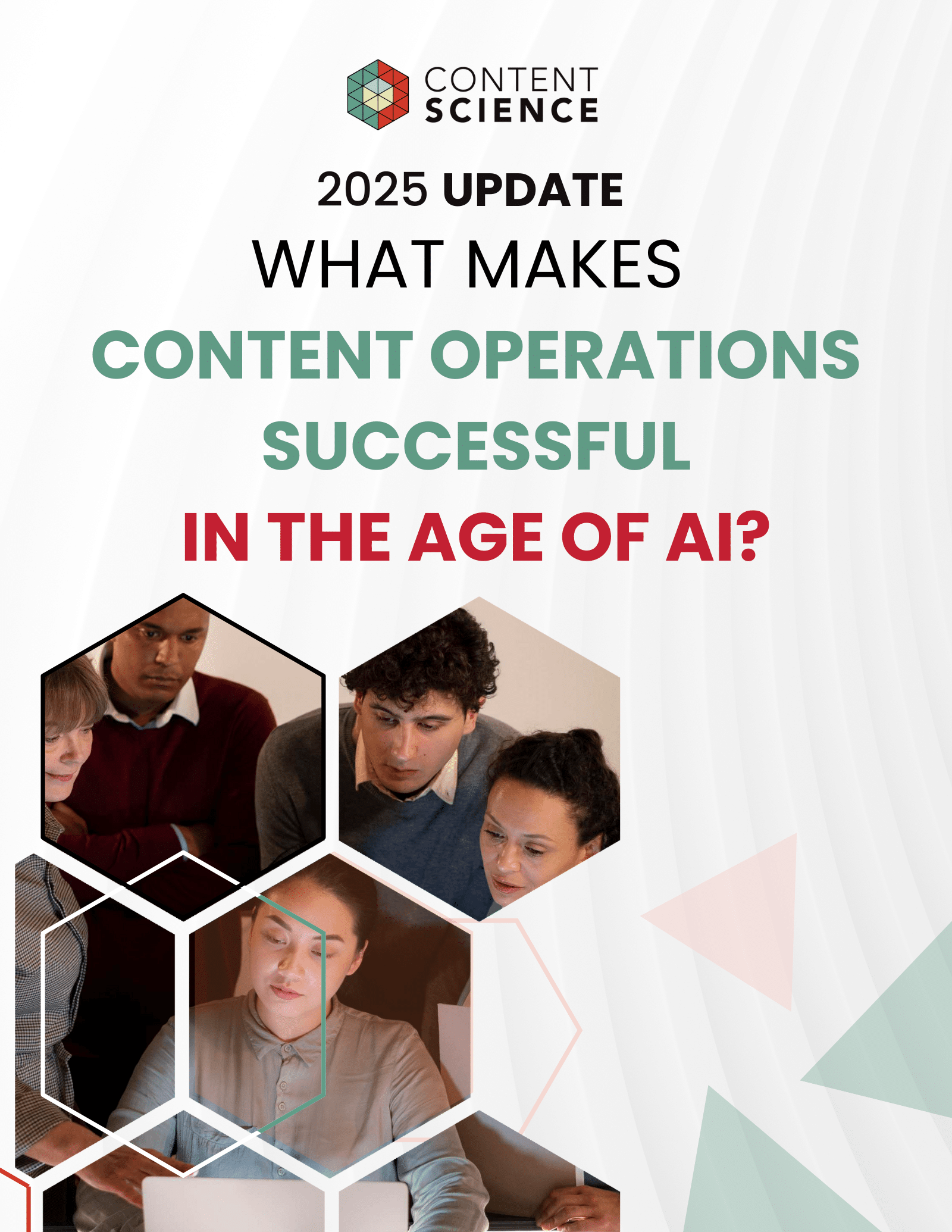
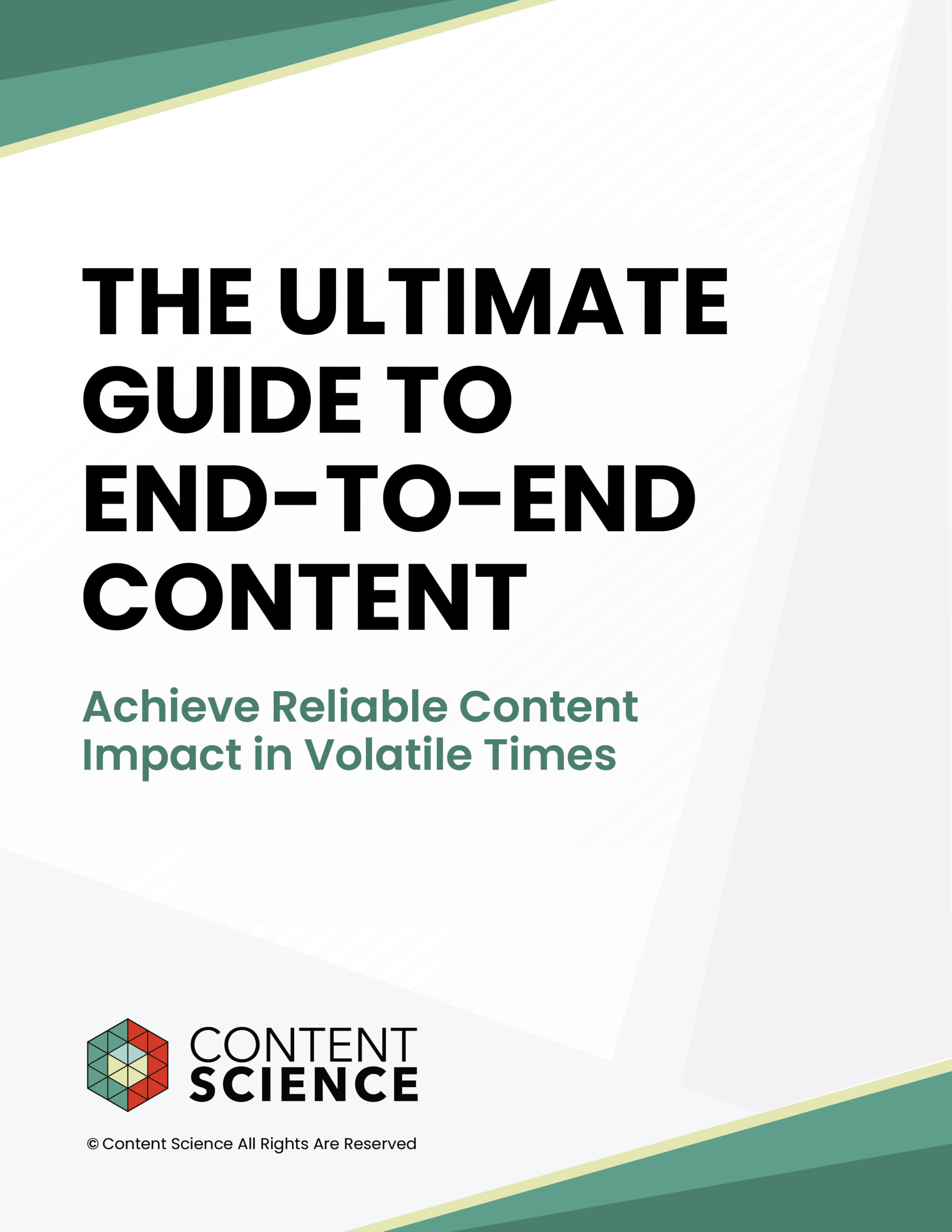
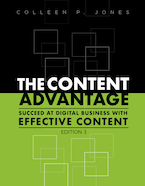

Comments
We invite you to share your perspective in a constructive way. To comment, please sign in or register. Our moderating team will review all comments and may edit them for clarity. Our team also may delete comments that are off-topic or disrespectful. All postings become the property of
Content Science Review.